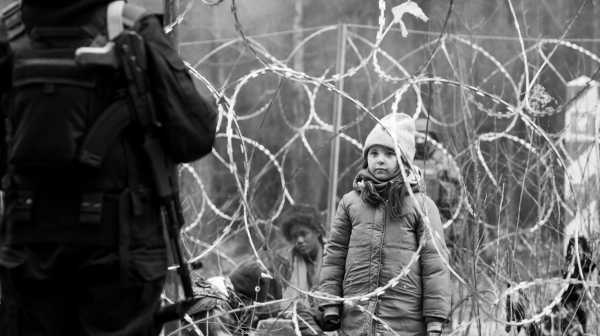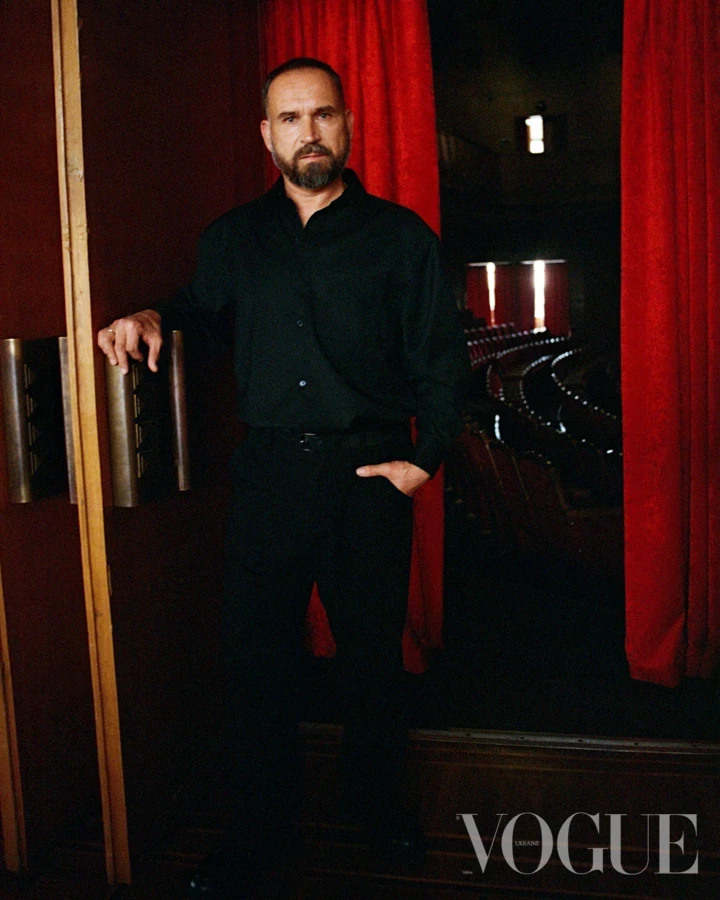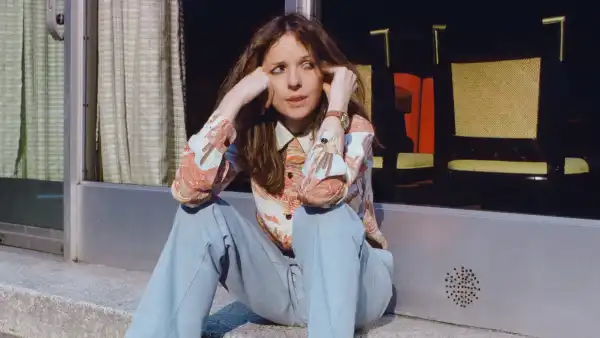
Save this storySave this storySave this storySave this story
October, 2021, a plane bound for Belarus. Among the passengers are a Syrian couple, Bashir (Jalal Altawil) and Amina (Dalia Naous), who are travelling with their three children and Bashir’s father (Mohamad Al Rashi); having fled war and persecution at home, they hope, ultimately, to join a relative in Sweden. During the flight, Amina befriends an Afghan woman, Leila (Behi Djanati Ataï), who, like them, is seeking political asylum abroad. A long, perilous journey lies ahead: after landing in Minsk, the family will be driven to the Belarusian-Polish border, their point of entry into the European Union—a corridor that was opened up to migrants just a few months before. “This route through Belarus is a gift from God,” Amina declares, nursing her youngest child as the plane descends. Even someone with no idea what awaits them would sense that she is terribly wrong.
So begins “Green Border,” a searingly powerful new movie from the seventy-five-year-old Polish-born filmmaker Agnieszka Holland, who has spent much of her career casting her cinematic lot with those brutalized by war. (She directed this film in collaboration with Kamila Tarabura and Katarzyna Warzecha, and co-wrote the script with Maciej Pisuk and Gabriela Łazarkiewicz-Sieczko.) The title refers to a dense maze of forests where Belarus and Poland meet, though we see the trees in full verdant color only briefly, in an opening overhead shot. After a few moments, the image shifts to black-and-white, and there it stays. There’s a small mercy in this decision; when Nur (Taim Ajjan), the oldest of Bashir and Amina’s children, touches a razor-wire fence and yelps in pain, you don’t see red oozing from the gash in his palm. But whatever the movie loses in visceral immediacy, it gains in fast-mounting tension and dread as the family—and Leila, who has joined them—are forced across the border by armed soldiers, whose angry voices merge into a barking din. A moment’s relief awaits on the other side: “We’re in Poland!” Leila exclaims. But their journey—and their nightmare—has only just begun; they have, in effect, fled one war zone for another.
The characters are fictional stand-ins for the real-life multitudes who have poured into Poland through Belarus since 2021, at the invitation of the Belarusian dictator, Alexander Lukashenka. In opening up this particular theatre of the global migrant crisis, Lukashenka has weaponized refugees against the E.U., with the aims of destabilizing the liberal West and fanning the flames of right-wing nationalism and anti-immigrant rhetoric worldwide. As Holland reminds us, those tactics have been effective. In one scene, set at a Polish border-services station, a hard-line official accuses Lukashenka of waging “classic hybrid warfare” and urges his guards to show no mercy to the migrants, whom he denigrates as criminals, terrorists, and sexual deviants: “They aren’t people,” he says. “They are live bullets!”
These bullets, it turns out, can not only be reused at will but also fired back in the other direction. Captured by Polish border guards, Leila, Amina, and the others are shoved across the border into Belarus again, setting a terrible cycle in motion. Not without a certain grim humor, Holland keeps updating the location cards—“Belarus,” “Poland,” “Belarus,” “Poland”—as the characters are driven back and forth through this woodsy, swampy circle of hell. Along the way, they are thrown together with other refugees, many of whom have been stuck in the same geopolitical limbo for ages, their bodies and spirits ground down by hunger, thirst, exposure, illness, and exhaustion—to say nothing of the beatings, shakedowns, and racist abuse they’ve endured on both sides. (Only a few months after the movie’s action is set, during the first weeks of the Russian invasion of Ukraine, close to two million Ukrainian refugees received a comparatively warm Polish welcome—a racist double standard that Holland dramatizes in a brief, pointed epilogue.)
The details coalesce in a swift succession of agonizing images: bandaged and blistered feet, uselessly depleted cell phones, families huddling in the cold and the rain, Amina desperately squeezing morning dew from a plant into the mouth of her daughter, Ghalia (Talia Ajjan). Scene by scene, “Green Border” is a work of devastating intelligence, striking visual clarity, and extraordinarily propulsive anger. Despite a weighty two-and-a-half-hour running time, the picture barrels forward at breakneck speed; the sheer agility of Holland’s filmmaking becomes a direct expression of her empathy. She and her director of photography, Tomasz Naumiuk, keep the camera in jolting, lurching motion without sacrificing coherence; the nimble editing, by Pavel Hrdlička, never lingers a beat longer than necessary. Even when the action builds to a frisson of outright horror—as in one unbearable scene, involving a pregnant Somali refugee (Joely Mbundu)—the movie doesn’t inflate or overemphasize. It allows the anguish of the moment to register, and then moves on to the next.
At the same time, the keen-eyed humanist in Holland is unafraid to let the story breathe, or to grant us instances of natural respite: the grandfather’s insistence on rolling out his prayer mat even in the wilderness, to his son’s disdain; the warm rapport between Nur and Leila, who gives the boy English lessons as they trudge through the woods. At every turn, the movie persuasively evokes a state of chaos without succumbing to it, so that from within the chaos a terrible clarity emerges. This is a story of systemic cruelty that you learn to read in the characters’ careworn faces: witness Bashir’s grim exchange of glances with a fellow-refugee, a silent warning of the arduous fate that awaits them both. Or consider Leila’s reproachful glare when she realizes that a friendly Polish farmer, who just gave her food and water, has also just ratted her out to the authorities. Holland reminds us that the machinery of mass barbarism depends on such individual acts of complicity and betrayal. Even the most sweeping injustices are enforced at human scale.
When “Green Border” premièred, last fall, at the Venice International Film Festival, it won a Special Jury Prize and earned Holland her most glowing reviews in decades. The movie was less happily received by Polish government officials, many of whom dismissed it, ludicrously (and presumably sight unseen), as Nazi propaganda. It wasn’t the first time that Holland—whose paternal grandparents died in the Warsaw Ghetto, and whose mother, a Catholic, was a resistance fighter in that city’s 1944 uprising—has been accused, by ideological foes on the right or left, of fomenting antisemitism. Even her 1990 masterpiece, “Europa Europa,” one of the most distinctive and searingly powerful of all Holocaust dramas, faced criticism from some for daring to tackle the real-life chronicle of Solomon Perel, a Polish Jew who survived the war by donning a Hitler Youth uniform. Holland’s great cinematic subject is the mix of courage, fear, instinct, calculation, and sheer dumb luck it takes to survive an authoritarian regime, let alone defy it. What makes her a brilliant political artist is her willingness to confront that subject head on, without shying away from dark ironies or disquieting moral complexities. Again and again, she rejects the lie of either the wholly inhuman oppressor or the wholly blameless victim.
In “Green Border,” the face of the oppressor is Jan (Tomasz Włosok), one of the Polish border guards we see forcing the refugees through their interminable gantlet. He is granted a short chapter of Holland’s narrative, and with it the barest sliver of sympathy. Jan is visibly stressed, with a pregnant wife at home—in a none-too-subtle parallel with the Somali woman—and he’s conflicted about his job. Although he torments the migrants under his watch, he does so with less visible gusto than his colleagues. But meagre stirrings of conscience aren’t enough, Holland insists, and she meaningfully contrasts Jan with another character, Julia (Maja Ostaszewska), a widowed Polish therapist who lives in a house at the edge of the woods. It is Julia who hears Leila’s cries for help in the marshes one night; how she responds, in a turn of events both stirring and devastating, changes the course of the movie and her entire life. Galvanized into action, she joins a group of tough-minded young activists, offering up the use of her home and her car, and joining them on their tense excursions into the woods to provide refugees with food, water, and medical care.
Julia’s heroism is bracing, but it’s a measure of Holland’s tough-mindedness that the character’s decision is treated as not a happy ending but a tough beginning. At this point, “Green Border” becomes an engrossing process movie about activism and protest. Julia learns about the restrictions of an “exclusion zone,” which relief workers are forbidden to enter, and about legal loopholes that can keep the migrants from immediate deportation. She also realizes how little even the strongest humanitarian efforts can accomplish. Frustrations produce endless squabbling among the activists, including two wonderfully drawn sisters: Marta (Monika Frajczyk), cautious and by the book, and Żuku (Jaśmina Polak), bristling with fuck-the-Man energy. In giving time to internal debate, “Green Border” sometimes reminded me of Holland’s Oscar-nominated Holocaust drama “In Darkness” (2011), based on a true story, about a thief, Leopold Socha, who all but stumbles into an act of heroism when he discovers several Jews hiding in the sewers of Lwów, Poland. It’s a story in which wartime survival is achieved not just through overt acts of courage but through endless negotiations—in this instance, between Jews and non-Jews, the hiders and the hidden, allies and potential traitors, oneself and one’s own conscience.
Julia’s activism surges to the narrative fore at the fleeting risk of overshadowing the fates of Leila, Bashir, Amina, and the others. But Holland never loses sight of them, or the fact that they fit into a larger story that she’s been telling her entire career—of escape, concealment, loss, and survival. On a moment-to-moment basis, “Green Border” exerts such an unyielding grip, and delivers such a thorough absorption in the political dramatic tensions of its conflict, that even the avid Holland admirer may miss some of its overarching resonances across her life and work. The movie, about what it means to exist without a country, arises indelibly from her own fractured sense of national identity and her own history of political dissidence. As a film student in Czechoslovakia in the late nineteen-sixties, Holland was imprisoned for participating in the Prague Spring protests; years later, when Poland imposed martial law, in 1981, she immigrated to France, where she lived in exile for many years, becoming a French citizen in 1989. Her career in the decades since has taken her hither and yon: to the United States, where her credits included Hollywood adaptations of “The Secret Garden” (1993) and “Washington Square” (1997), and episodes of the TV series “The Wire” and “Treme”; and back to Central and Eastern Europe, where she dramatized the ravages of Soviet totalitarianism in the miniseries “Burning Bush” (2013) and the drama “Mr. Jones” (2019).
Above all, Holland’s work has always led her to Poland—and specifically to Poland’s forests, which in her hands become a primeval landscape of terror and enchantment, wreathed in mists of historical memory that her camera has a peculiar ability to both evoke and dissipate. These woods provide the setting (though not the filming location) of her 1985 West German production, “Angry Harvest,” about a Polish Catholic farmer who hides a Jewish refugee during the Second World War. And “In Darkness,” before it descends into the sewers of Lwów, features a haunting sequence in the forest, in which Socha, the wily thief, witnesses a group of naked Jewish women being chased to their deaths by Nazi guards. Now, in “Green Border,” Holland is back in the woods, bringing hidden horrors to light; in doing so, she consciously positions her migrant characters on a visual and historical continuum with the victims and survivors of the Holocaust and other catastrophes, refuting the distinctions we might be tempted to make between one set of atrocities—or one group of people—and another. The injustices of the present, Holland reminds us, are all history in the making. ♦
Sourse: newyorker.com






